Junkyard Gem: 2006 Dodge Charger Daytona R/T

The Dodge Charger story has been through quite a few fascinating plot twists since the first 1966 models appeared in showrooms to lead the “Dodge Rebellion” against the similar-looking Rambler Marlins that had beaten the Coronet-based fastback Mopars to the marketplace by a year. You had the B-Body Chargers through 1978, which resembled first their Plymouth Satellite and then Chrysler Cordoba siblings, then a few years off before the introduction of a Simca-derived front-wheel-drive Charger for 1982 through 1987. All those Chargers had two doors apiece, but DaimlerChrysler’s Charger revival for the 2006 model year featured four doors … and more available horsepower than any production Charger ever seen before*. Here’s one of those ’06 Chargers, Hemi and all, found in a Denver-area self-service car graveyard a few months back.
The VIN says this car is a genuine R/T; the 2006 Daytona was just an appearance package that included a big decklid spoiler and flashy graphics in addition to all the other R/T goodies, so I can’t be certain that this car started life as a genuine Daytona or not. It appears that the graphics were masked off and then retouched when the thick coat of rattlecan flat-black got applied to this car, but they could have been applied over the third backyard paint job.
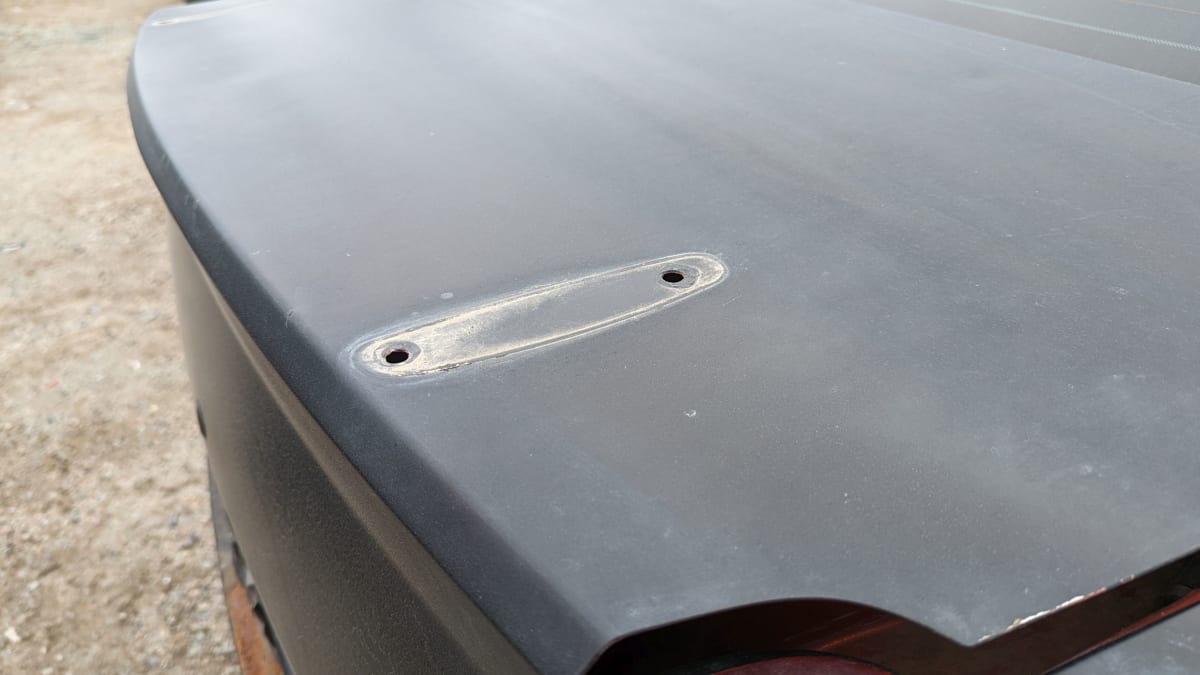
A spoiler once lived here, but it appears to have been installed after the black paint job.
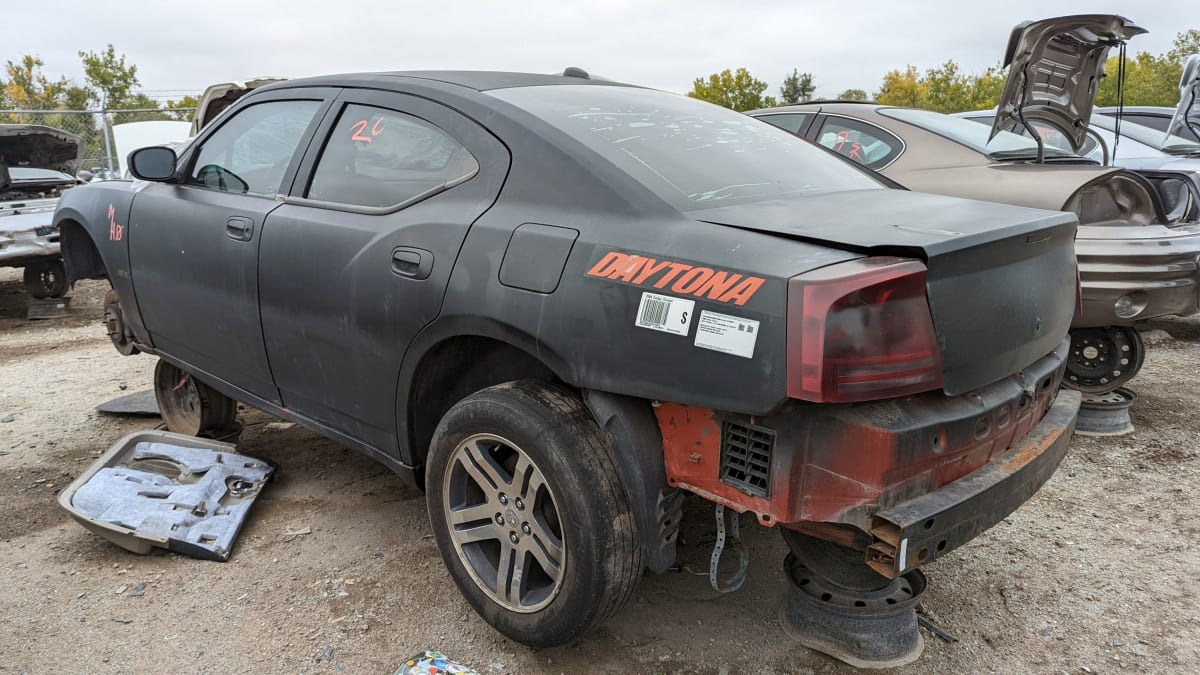
According to the build tag, the original paint color on this car was GoManGo!, with exclamation point. Later on, the spelling for this color’s name changed to two words and no punctuation.
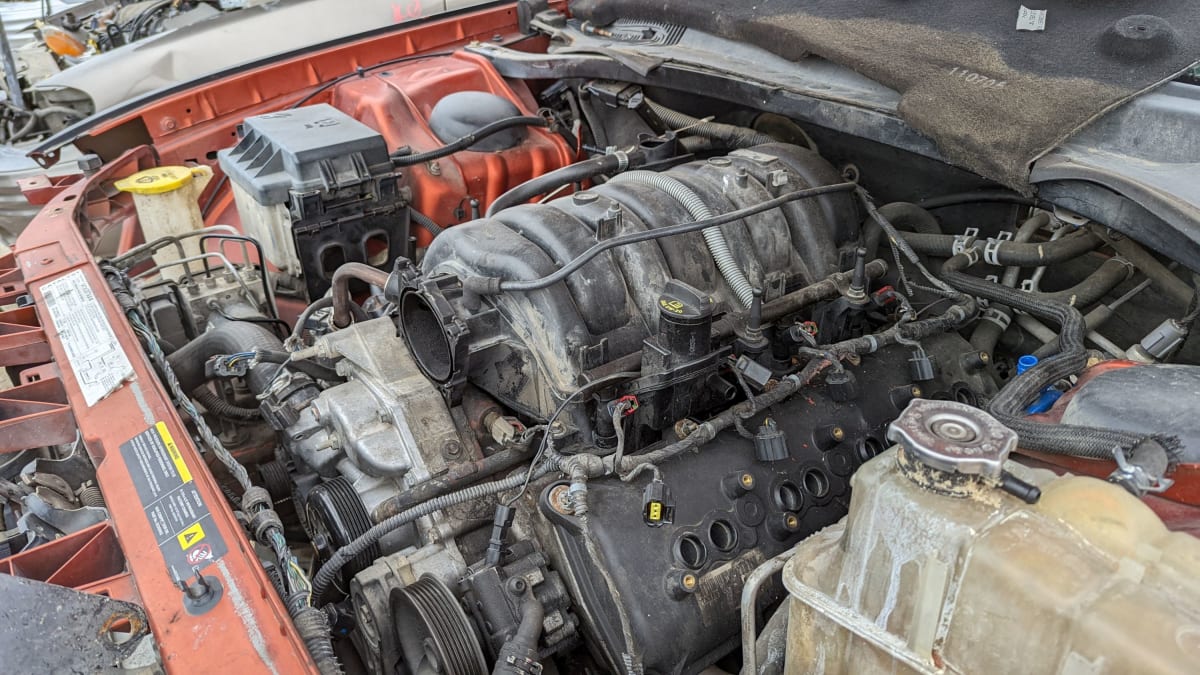
The original Chrysler Hemi engine evolved out of a World War II experimental aircraft engine design, first appearing in Chrysler models for the 1951 model year. By the late 1960s, the Hemi was making absurd power on the race track and dangerous power (considering the scary brakes and suspensions of the era) on the street.
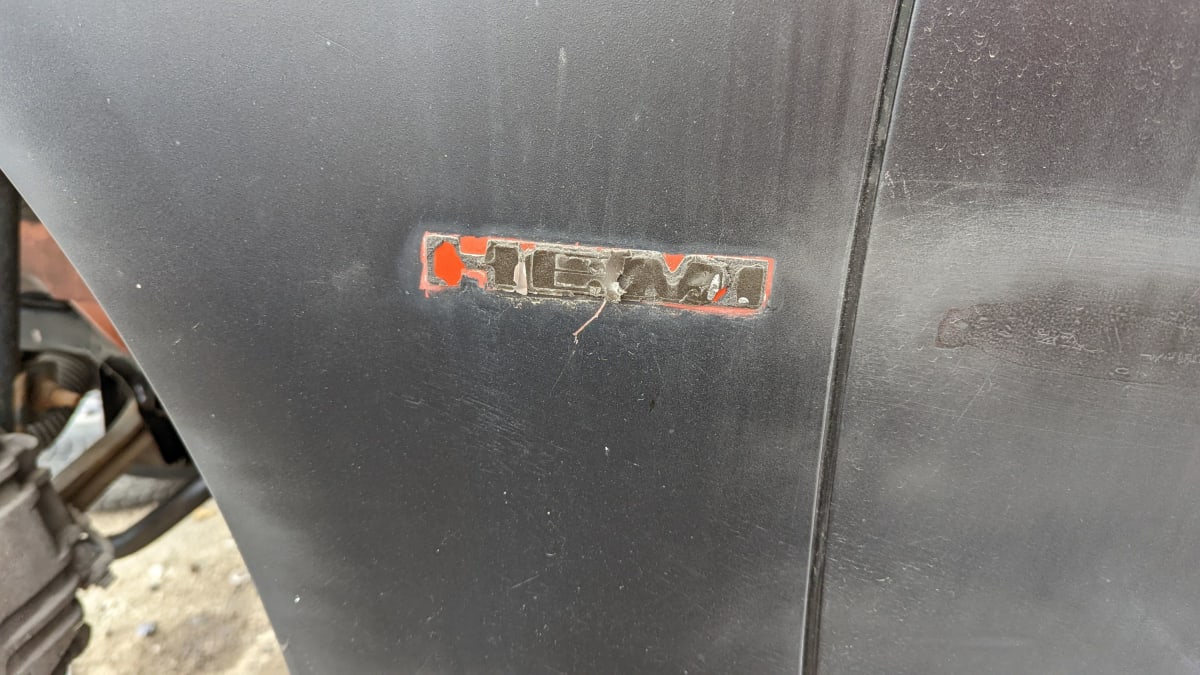
The wild compression ratios, lumpy cams and huge carburetors used on the street Hemis of the 1966-1971 period made them so uncivilized as to be nearly undriveable on the street. They overheated, stalled, fouled the spark plugs, vapor-locked, and generally got unhappy when engaging in anything other than full-throttle mayhem or looking cool with the hood open. The 21st-century Hemi shares just the name with its predecessor, and modern engine controls make it perfectly comfortable on the street.
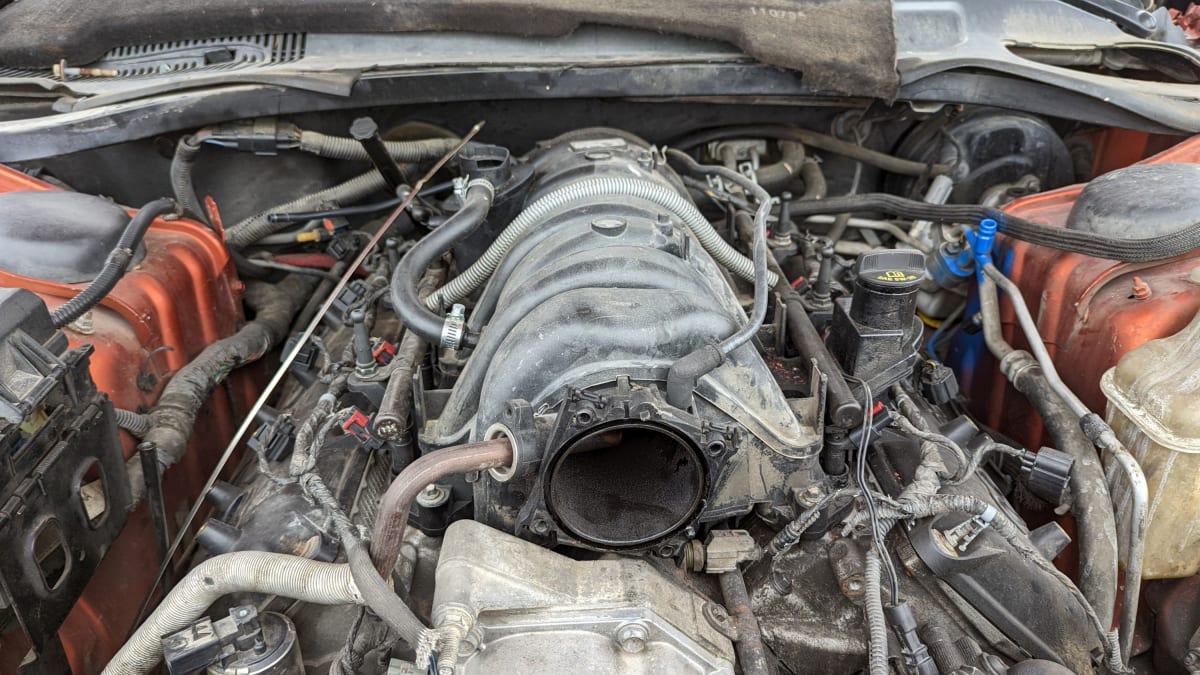
The 2006 Charger R/T got this 345-cubic-inch (5.7-liter) Hemi, rated at 350 horsepower and 390 pound-feet of torque. When these engines first started showing up in the Ewe Pullet-type yards, seven or eight years ago, they’d get yanked instantly. These days, it appears that everyone who wants a junkyard Hemi already has one, and these engines tend to go to the crusher along with their cars.
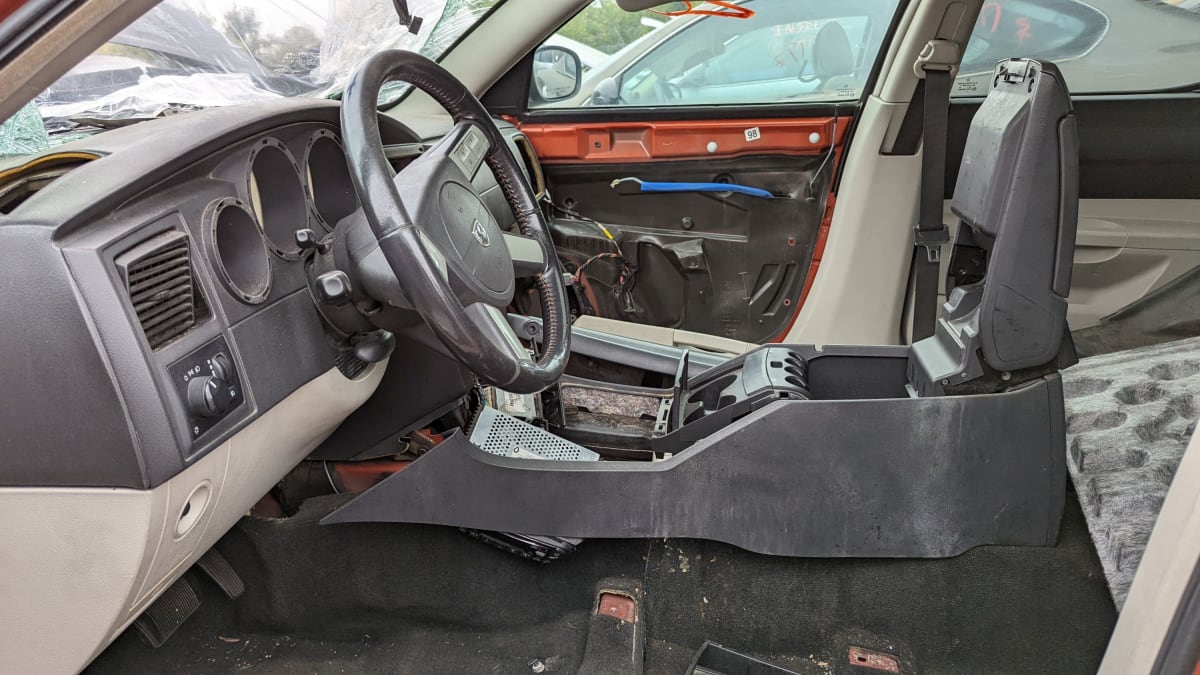
Manual transmission? Sorry, the last production Charger to get one of those was built in 1987. This car has a five-speed “AutoStick” slushbox.
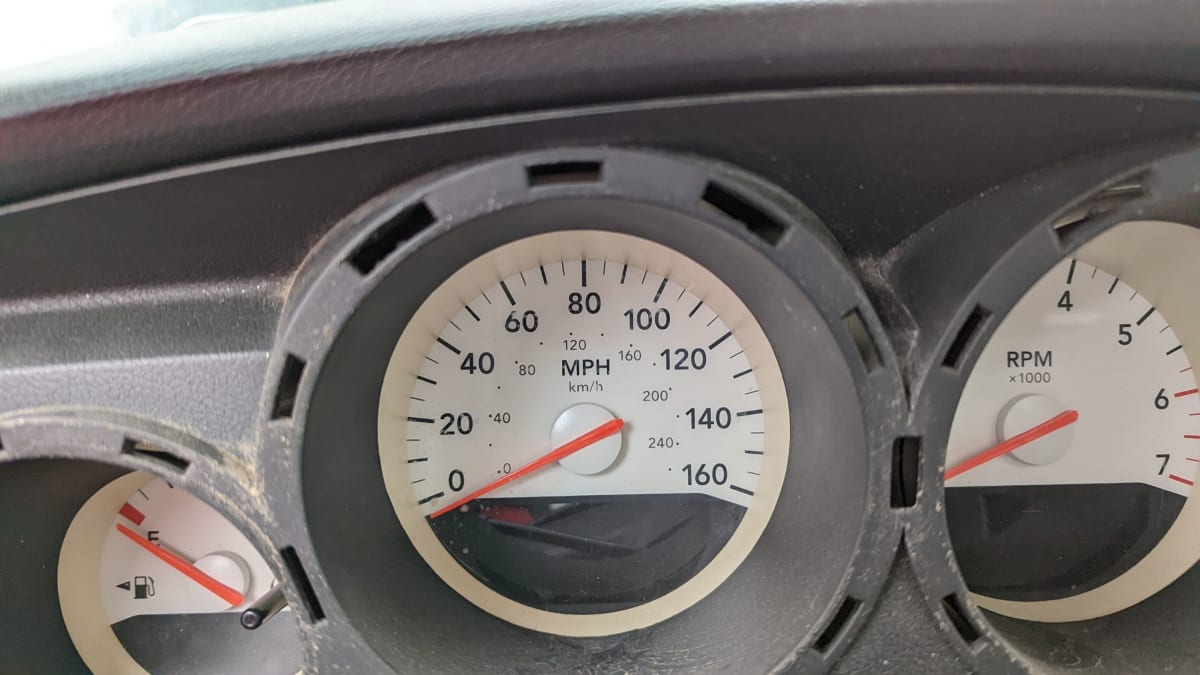
From all appearances, this car lived fast. Did it die young? 16 years is nearly four years older than the average car or light truck now on American roads, but you’d expect a genuine special-edition performance car to stick around a bit longer … or maybe not.
R.I.P, Dan McCafferty.
*Meaning only American-market, street-legal, mass-production Chargers, not race vehicles, dealer-installed hot-rod engines, and so on. If you consider modern net power ratings plus the fudging of power numbers common in Detroit in the old days, consider that Chrysler’s marketers in 1970 probably would have rated the 2006 Charger SRT8’s 425 net horses at something like 600 hp. Of course, the 1970 Charger R/T weighed a mere 3,638 pounds, so the 425 gross horses of its optional 426 Hemi had to strain against about 520 fewer pounds than their 2006 counterparts.



